Best Time for Intercourse for Pregnancy
Published: 24 April 2025
The best time for intercourse to achieve pregnancy is during the ovulation period. This window lasts for about six days — starting five days before ovulation and including the day of ovulation itself.
The highest chance of pregnancy occurs on the day of ovulation itself, with the probability reaching up to 33%.
This likelihood drops to 10% if intercourse takes place five days before ovulation, and it becomes negligible afterward.
Since sperm can survive for up to five days in the female reproductive tract, having intercourse daily during this window increases the chances of conception.
As for the egg, it remains viable for fertilization for only 12 to 24 hours after ovulation, which makes timing critically important for achieving pregnancy.
Swipe the picture for a quick summary of the article
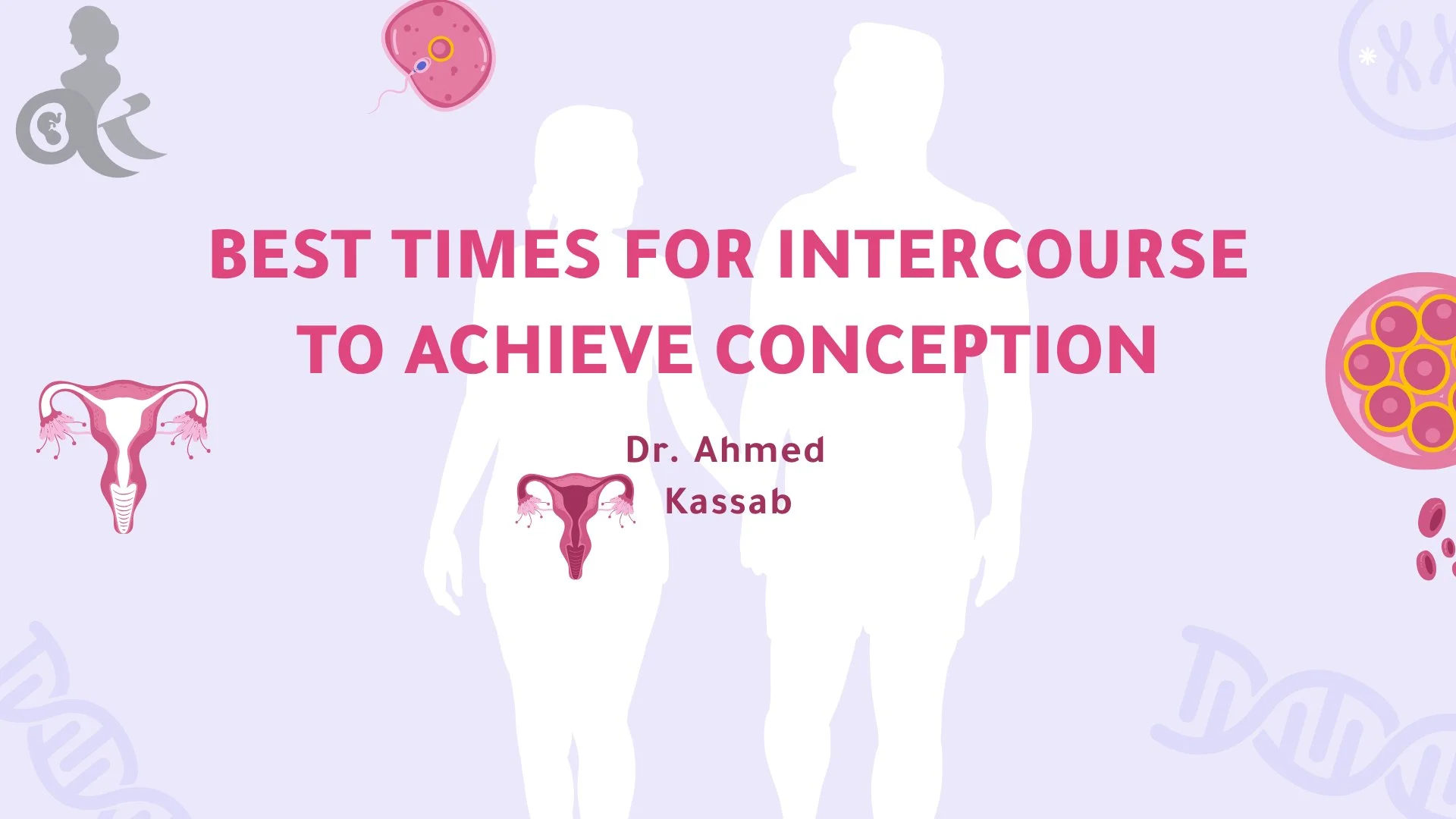
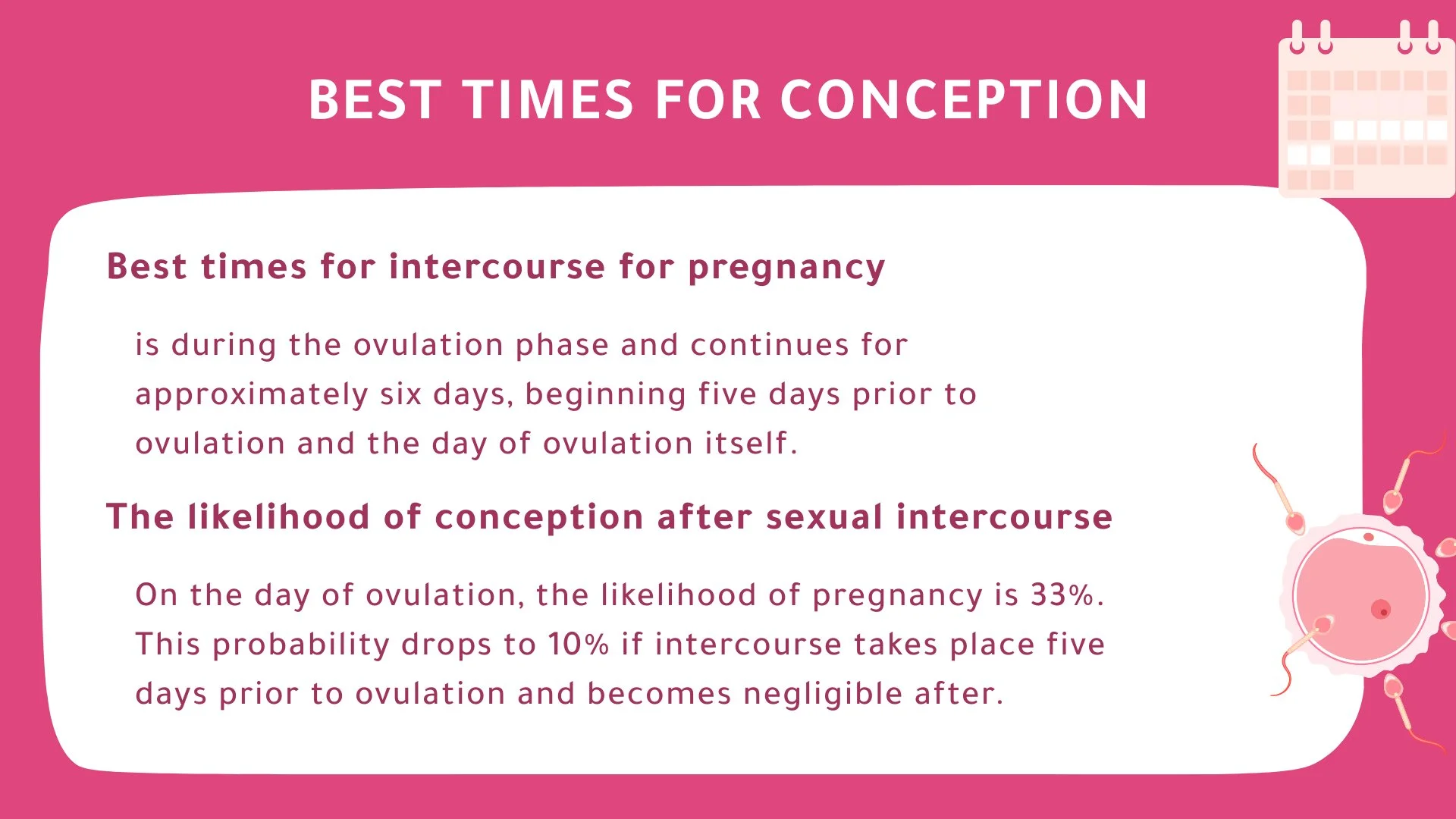
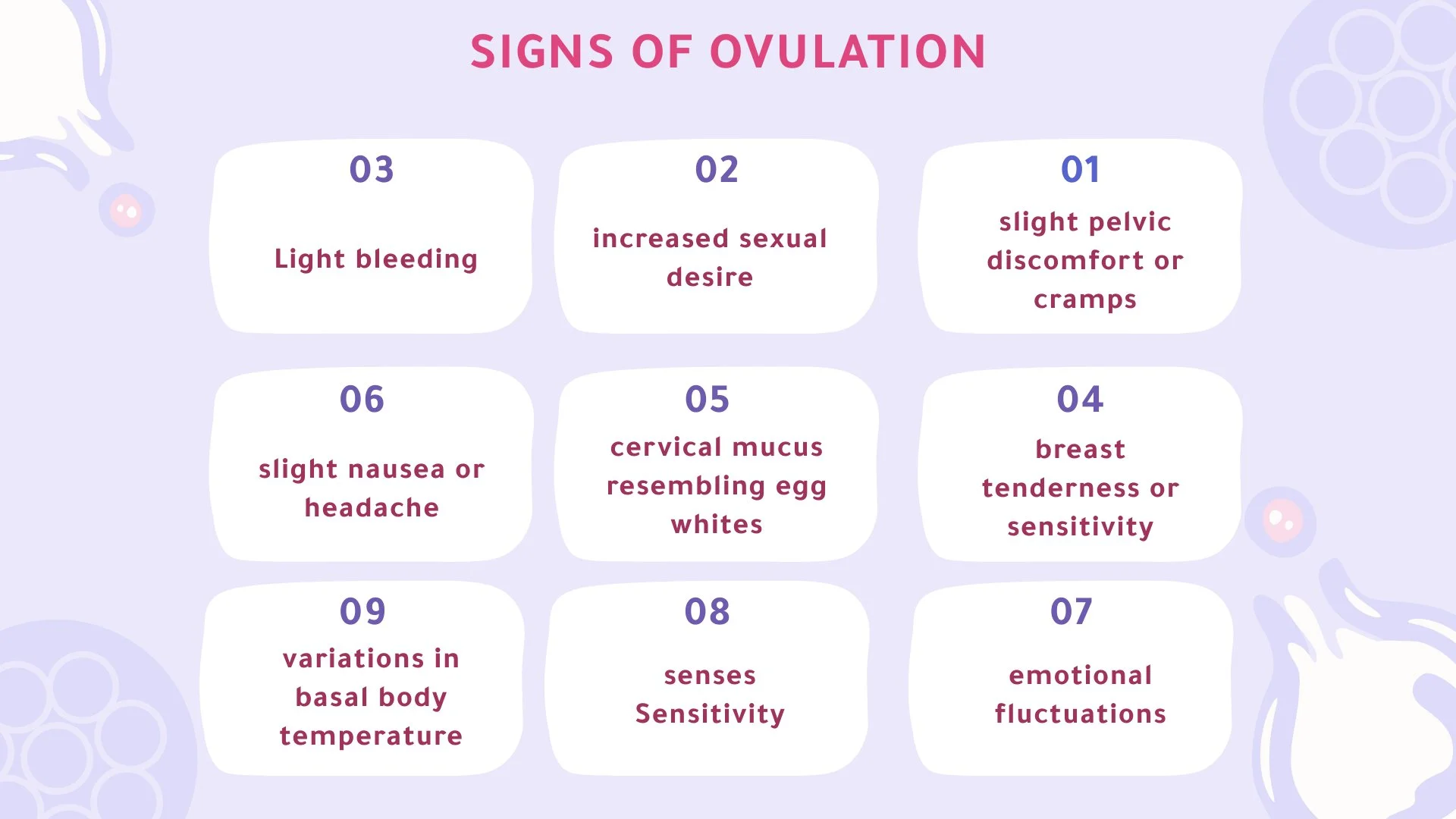
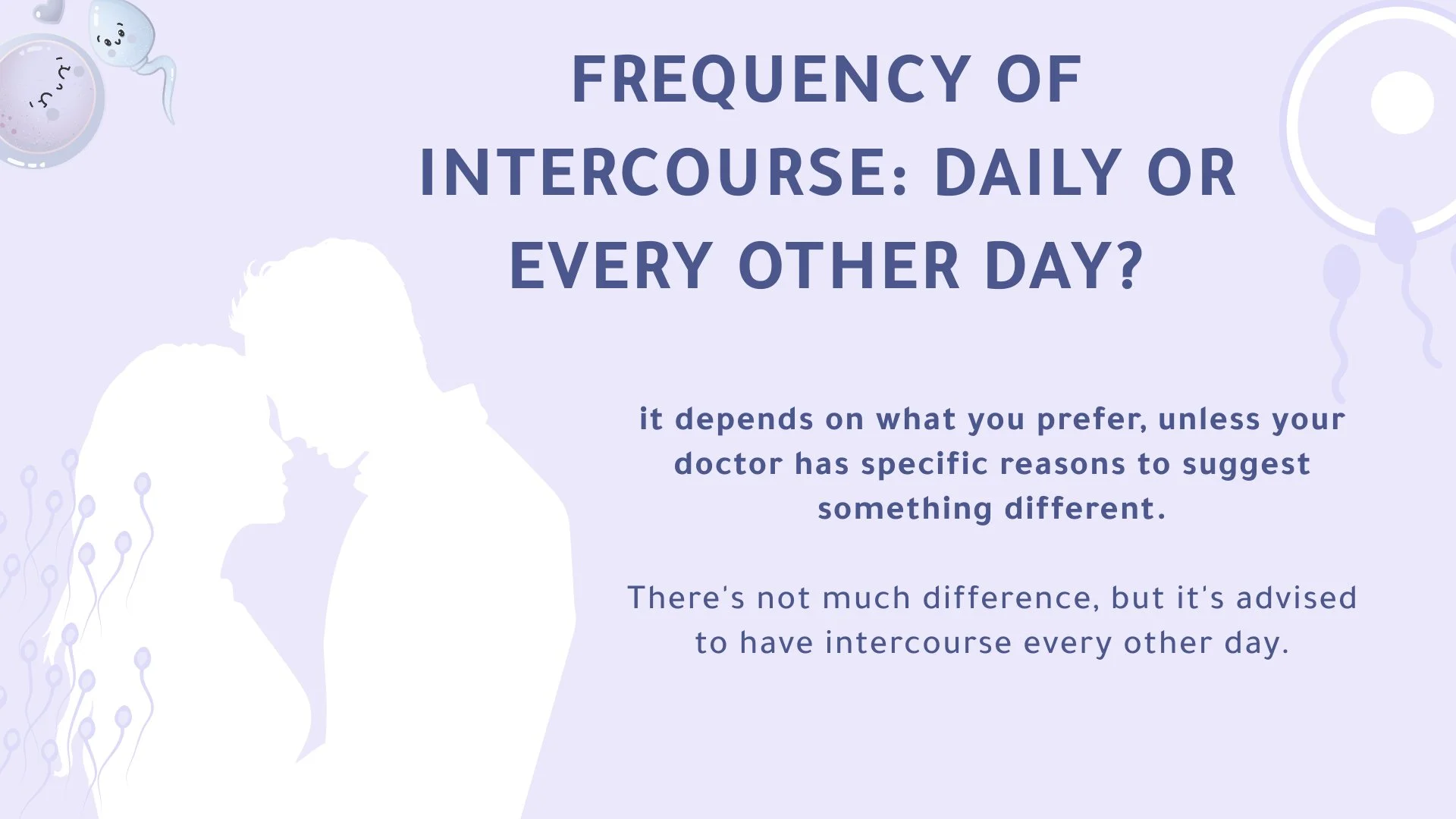
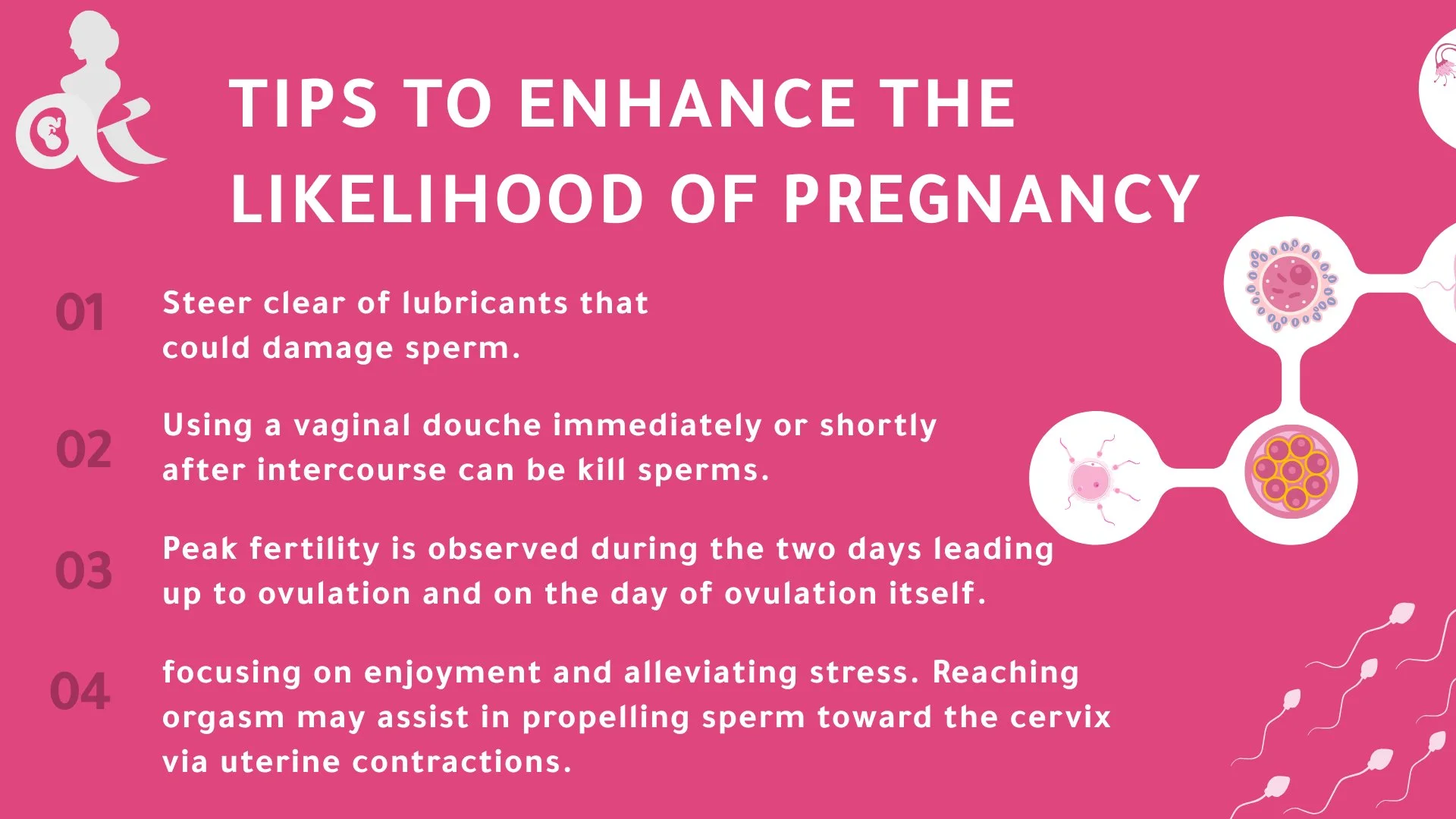
Find out your ovulation date and the best day for intercourse to get pregnant using the Ovulation Calculator
To confirm your ovulation day, watch for the signs that occur on or around the time of ovulation.
ovulation symptoms
Ovulation can present with different symptoms, though not all women experience them. These are some common signs your body may show when you’re ovulating:
- Mild pelvic pain or cramping: May last from a few hours to two days.
- Ovulation pain: Some women feel mild pain or cramping on one side of the abdomen due to the release of the egg.
- Increased sexual desire: Some women notice a rise in libido due to hormonal changes.
- Light spotting: Some women experience light bleeding or spotting during ovulation. It may appear pink or brown (unlike the heavier bleeding of a period).
- Mild nausea or headache (less common)
- Mood swings: Hormonal changes can lead to shifts in mood or appetite.
- Breast tenderness or sensitivity: Hormonal fluctuations may cause breast pain or swelling around the time of ovulation.
- Egg white cervical mucus (EWCM): Cervical mucus becomes clearer, thinner, and more slippery, similar to raw egg whites.
- Heightened senses: You may temporarily notice an increase in your sense of smell, sight, or taste.
- Bloating and water retention: Hormonal changes may cause a feeling of bloating.
- Changes in basal body temperature (BBT): Your temperature may drop slightly before ovulation and then rise afterward.
Do All Women Experience These Symptoms?
No, Some women don’t feel anything at all, while others notice several signs. Tracking symptoms can help you understand your body’s patterns.
These symptoms vary from one woman to another, and you may not experience all of them.
If you’re trying to track ovulation, observing these signs and monitoring your menstrual cycle can be very helpful.
Frequency of Intercourse to Get Pregnant
Daily intercourse during the ovulation period is not necessary, but it can be effective if you and your partner prefer it.
Having sex every other day is often recommended because it helps maintain a high sperm count and avoids a potential decline in sperm quality that can occur with very frequent ejaculation, especially if the sperm count is already low.
This approach also reduces the stress often associated with trying to conceive. However, if you prefer daily intercourse, there’s no strong evidence that it will harm your chances of getting pregnant.
Ultimately, it comes down to personal preference—unless your doctor advises otherwise for a specific reason.
Increase Your Chance of Getting Pregnant
Have Sex During Your Fertile Window
The best time to have intercourse is during ovulation, which includes the five days leading up to ovulation and the day of ovulation itself.
Peak fertility occurs in the two days before ovulation and on the day of ovulation, so be sure to have intercourse on these days for the highest chance of conception.
Avoid lubricants that may harm sperm
Many commercial lubricants can slow down or kill sperm. If you need a lubricant, choose one specifically designed to be sperm-friendly and not interfere with sperm movement.
Avoid vaginal douching
Using a vaginal douche immediately after intercourse or even shortly afterward, can harm sperm and reduce the chance of pregnancy.
Focus on pleasure and reducing stress
Reaching orgasm may help move sperm toward the cervix through uterine contractions.
When Should You See a Doctor for Infertility Issues ?
Age and delayed conception:
If you’ve been trying to conceive and are concerned about a delay, wait 12 months before seeing a doctor if you’re under 35, 6 months if you’re between 35 and 39, and 3 months if you’re 40 or older.
Irregular menstrual cycles:
Consult your doctor if your cycle is shorter than 21 days, longer than 35 days, or absent for 3 months or more.
Reproductive health issues:
Seek medical advice if you have a history of polycystic ovary syndrome (PCOS), endometriosis, fibroids, pelvic infections, or recurrent miscarriages.
Severe menstrual or sex-related pain:
This includes intense cramping, pelvic pain, or discomfort during sexual intercourse.
Male fertility concerns:
Issues such as erectile dysfunction, low sperm count, or abnormal semen analysis results.
Signs of hormonal imbalance:
Excessive hair growth, acne, weight changes, or milky breast discharge.
Ovulation tracking with no pregnancy:
If you’re ovulating regularly but haven’t conceived after 6 months or more of consistent unprotected sex, this may be a sign of an infertility issue.
Medical history that may affect fertility:
Including chemotherapy, radiation therapy, or previous pelvic surgeries.
share this article with someone who would find it helpful
References
The timing of the “fertile window” in the menstrual cycle: day specific estimates from a prospective study
https://pmc.ncbi.nlm.nih.gov/articles/PMC27529/
Trying to Get Pregnant? Here’s When to Have Sex.
Ovulation Symptoms
https://www.webmd.com/baby/am-i-ovulating
Ovulation and fertility
https://www.betterhealth.vic.gov.au/health/conditionsandtreatments/ovulation
